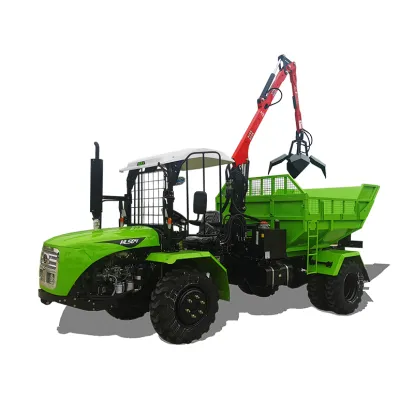Top 10 Questions About Tractors
Tractors play a pivotal role in agriculture, construction, and various other industries, serving as powerful workhorses that contribute to efficiency and productivity. As versatile machines, tractors often spark a myriad of questions among enthusiasts, professionals, and those considering their use. In this article, we will delve into the top 10 questions about tractors, providing comprehensive answers to shed light on these indispensable vehicles.
1. How Do Tractors Work?
Tractors operate using an engine that generates power to propel the vehicle and operate attached implements. The engine's power is transmitted to the wheels through a transmission system, allowing the tractor to move forward or backward. Additionally, tractors often have a Power Take-Off (PTO) to transfer power to various implements like plows or mowers.
2. What Are the Different Types of Tractors?
Tractors come in various types, each designed for specific tasks. Common types include utility tractors for general-purpose use, row-crop tractors for row farming, and specialty tractors tailored for tasks like orchard work or vineyard management.
3. How Do I Choose the Right Tractor for My Needs?
Selecting the right tractor involves considering factors such as horsepower, terrain, and intended tasks. Assessing the specific requirements of your operations will help determine the appropriate size, power, and features needed for optimal performance.
4. What Maintenance is Required for Tractors?
Regular maintenance is essential to ensure the longevity and efficiency of a tractor. This includes checking fluids, inspecting tires, greasing moving parts, and servicing the engine. Following the manufacturer's maintenance schedule is crucial for preventing breakdowns and costly repairs.
5. Can Tractors Run on Alternative Fuels?
While diesel is the most common fuel for tractors, there is a growing interest in alternative fuels. Some tractors are designed to run on biodiesel or compressed natural gas, offering environmentally friendly options for farmers and operators.

6. How Do Tractors Navigate on Hilly Terrain?
Tractors designed for hilly terrain often feature four-wheel drive (4WD), low center of gravity, and specialized tires for improved stability. Additionally, advanced models may have slope-sensing technology and automatic traction control to enhance safety on slopes.
7. Are Tractors Only Used in Agriculture?
While tractors are synonymous with agriculture, their applications extend beyond farming. They are widely used in construction, landscaping, forestry, and even in maintaining sports fields. The versatility of tractors makes them indispensable across various industries.
8. What Safety Features Do Tractors Have?
Tractors are equipped with safety features to protect operators. Rollover Protection Structures (ROPS) provide a protective frame in case of rollovers, and many tractors also have seat belts, ergonomic designs, and safety switches to enhance overall operator safety.
9. How Do GPS and Technology Impact Tractors?
Modern tractors often come equipped with GPS and precision farming technologies. GPS guidance systems enable precise navigation and implement control, optimizing field operations and reducing overlap. This technology enhances efficiency and reduces input costs.
10. Can Tractors Be Used for Sustainable Practices?
Tractors play a crucial role in sustainable agriculture practices. Precision farming, no-till farming, and cover cropping, facilitated by tractors, contribute to soil health, water conservation, and overall environmental sustainability in agriculture.
In conclusion, tractors are multifaceted machines that have evolved significantly over the years. From their basic functionality to their applications in diverse industries and the integration of advanced technologies, Farm tractors continue to be a driving force behind productivity and innovation. Understanding the nuances of tractors and their capabilities is essential for making informed decisions when it comes to selecting, operating, and maintaining these indispensable vehicles.
233
0
0
All Comments (0)
If you are interested in sending in a Guest Blogger Submission,welcome to write for us!




Comments